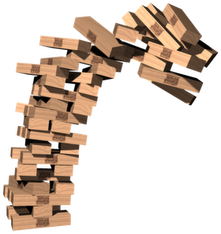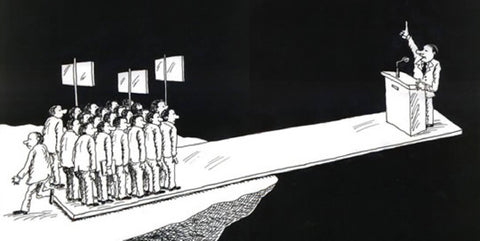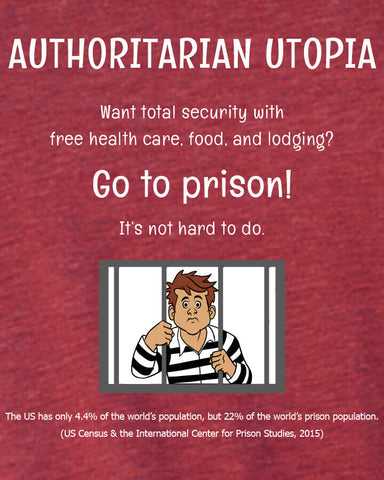 Remember Emelio Estevez? Before his 'Brat Pack' stardom faded and his brother, Charlie Sheen, lost his mind, he once made a movie called Wisdom in which he played a modern-day Robin Hood. He bought an Uzi, converted it to fully automatic by shortening the barrel — turns out you can do that in Hollywood — and started robbing banks for, um, justice or something. Emilio's character committed a series of crimes that took time, effort, and bullets; lots and lots of bullets.
Remember Emelio Estevez? Before his 'Brat Pack' stardom faded and his brother, Charlie Sheen, lost his mind, he once made a movie called Wisdom in which he played a modern-day Robin Hood. He bought an Uzi, converted it to fully automatic by shortening the barrel — turns out you can do that in Hollywood — and started robbing banks for, um, justice or something. Emilio's character committed a series of crimes that took time, effort, and bullets; lots and lots of bullets.
He knew — and we knew — that what he was doing was criminal. But that was then, and this is now.
Back then, people thought mullets and JNCO Wide Leg Jeans were a good idea. Today, things are different.
 A few years back, there was this awesome anti-piracy ad that ran on television and in movie theaters that started out, "You wouldn't rob a liquor store. You wouldn't steal a car ... so why would you illegally download movies?"
A few years back, there was this awesome anti-piracy ad that ran on television and in movie theaters that started out, "You wouldn't rob a liquor store. You wouldn't steal a car ... so why would you illegally download movies?"
Well, turns out some of us would knock over 'virtual' liquor stores left and right, if that's the standard we're going by here. The fact is, if anybody with a cable modem could download the contents of a bottle shop to their garage, there'd be a lot more incipient alcoholics out there.
So if a buddy's ever given you a copy of a torrented movie, you've committed a crime. You probably get that on some level. But you've also committed crimes you know nothing about.
There's an old joke I once heard about the speed limit in Italy. There is a speed limit, but so far, nobody has reached it. Well, that same joke applies to the number of laws in the United States today. The fact is, nobody knows how many laws we now have on the books in the "Land of the Free." Nobody's counted that high — nor can they.
In his 2009 book, Overcriminalization: The Limits of the Criminal Law, legal scholar Douglas Husak pointed out that federal law alone includes more than 3,000 crimes, and regulatory agencies administer more than 300,000 federal regulations. Of course, these totals exclude state and local dictates. At the mad rate we're stacking new laws and regulations like a game of Dystopian Jenga, what do you figure the number is now?
In a society subject to the 'Rule of Law,' people can realistically be expected to know when they're violating the law. However, today's hyper-legislative, hyper-regulatory environment makes this reasonable standard an impossibility. For instance, Husak estimates 70% of Americans have committed a jailable offense, and attorney Harvey Silvergate famously estimated that the "average person" unwittingly commits three (3) federal crimes each day.
Today, someone who wants to abide by the law has no quick and easy way to determine the law's content. This reality is not only a violation of the traditional principle that the State cannot punish people for unknowable offenses, it also creates a climate of fear.
With the likelihood that we've unintentionally committed a jailable, victimless offense for which we can be prosecuted, we're less likely to speak out against injustices perpetrated by the State and its functionaries for fear of reprisal. We're potential targets for arbitrary prosecution in a deeply flawed legal system, and the personal costs can be mighty steep, including imprisonment and even the loss of your home through "asset forfeiture" laws.

In Ayn Rand's novel, Atlas Shrugged, a power-hungry character shares the regime's core strategy for maintaining its despotic rule:
"There's no way to rule innocent men. The only power any government has is the power to crack down on criminals. Well, when there aren't enough criminals, one makes them ... you create a nation of lawbreakers – and then you cash in on guilt."
With 24% of the world's prison population — the largest of any country — the United States now embodies this authoritarian vision. By definition, when the government passes a law, it creates a new class of criminals. As laws multiply, so does the number of people who can be prosecuted under those laws.
But the cost to society of such an expansive legal system extends far beyond the obvious threat posed to our liberty. For instance, each law (or regulation) requires the use of limited resources for its administration and enforcement. The time, energy, and money expended on one objective cannot be used elsewhere, a fundamental concept economists refer to as "opportunity cost."
For instance, when law-enforcement agencies focus on 'victimless crimes' such as possession of an unapproved plant or feeding the homeless without a permit, those resources are no longer available for other purposes, such as preventing or stopping violent crime. In economic parlance, the diminished effort against violent crime is one "opportunity cost" of diverting resources to the pursuit of victimless crimes.
Simple application of the 'Golden Rule' and a dash of common sense would account for the vast majority of genuine crimes. If I harm, rob, or defraud somebody, or damage or pollute their property, I should either be held accountable for restitution to the victim, or made subject to reasonable lawful penalties. However, expanding the legal realm far beyond these traditional standards inflicts an onerous cultural and economic toll on society.
It's long past time we start dismantling this teetering tower of Dystopian Jenga before it all comes crashing to the ground. That means we've got to break out the axes and machetes before the public at large goes straight to pitchforks and torches.
WRY GUYS TEE — Authoritarian Utopia

Authoritarian Utopia, a funny libertarian t shirt for people concerned about the unchecked American police state and surveillance state.

